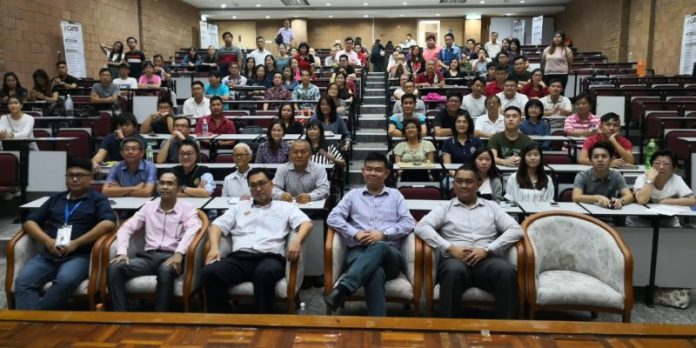By Karen Bong
KUCHING, Oct 13: E-commerce fraud is on the rise in tandem with e-commerce growth in Malaysia, cautioned said Deputy Minister of Domestic Trade and Consumer Affairs Chong Chieng Jen.
He revealed that there was a 50 per cent spike in cases in the last two years, from 2,279 in 2016 to 3,372 in 2017. Most of the complaints concern goods received that did not match the descriptions as advertised, making buyers feeling cheated.
“As at Sept 31 this year, 3,410 cases have been recorded,” he said, after addressing the Chinese e-commerce course organised by the DAP Stampin and Bandar Kuching Service Centre at i-CATS in Jalan Stampin Timur here today.

To address this problem, Chong said the government had come up with the Malaysian Trustmark to ensure and promote greater safety, trust and confidence in e-business.
“It is a logo like Sirim to certify the trustworthiness of products and services offered through the Internet,” he elaborated.
Chong, who is also DAP Sarawak chairman, encouraged online businesses to apply for this logo that would help consumers identify genuine online businesses.
“From our record, there are 106,000 companies registered to run e-commerce business in Malaysia.
“E-commerce now accounts for 17.8 per cent of the country’s Gross Domestic Product (GDP), and it is estimated to increase to 20 per cent by 2020, which amounts to some RM200 billion,” he added.
With 80 per cent of the population or 24 million people being social media users while 50 per cent of them are online shoppers, he emphasised that these were the key features making Malaysia conducive for e-commerce.
Internationally, he continued, Malaysia was positioned at 27 in the World Digital Competitiveness Ranking.
“Past and current governments have put emphasis on how to develop the digital economy and e-commerce in which USD10 billion has been allocated to develop digital technology, 70 per cent of which is for hardware development and 30 per cent for software,” he said.
Besides promoting trade and commerce, he stressed that the development of the Internet and digital technology could also reduce rent-seeking activities in the economy.
“Rent seeking is non-productive and is basically corruption. You don’t do anything economically productive but you take money. So a lot of these have to do with commissions, which is very rampant and taken its toll on Malaysians,” he said, using 1MDB as a rent-seeking example.
In addition, Chong shared that his ministry in collaboration with the Intellectual Property Corporation of Malaysia (MyIPO) was looking into and studying ways of valuation and capitalisation of digital assets in the country.
“We are in the pipeline to establish a valuation process for the digital economy, just like house or land in which you can attach value in ringgit terms and can charge it as collateral to the bank to raise funds.
“But so far for the digital economy, it is rather difficult. So, we are looking into the process, including through cooperation with other countries because there must be an international standard that must be abided and follow. Otherwise, you can value anyhow but once outside, it is no use if not recognised,” he added. — DayakDaily








